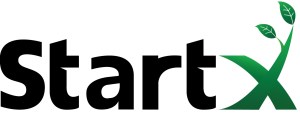
Stanford’s student startup accelerator, StartX, had its eighth demo day tonight in Palo Alto, showing off the latest class of 11 companies* to go through the program. The accelerator, which just raised another $400,000, has already had about 100 startups go through, raising $100 million along the way between them. This next batch is hoping to follow that lead.
Here’s the next class of Stanford StartX companies, in the order they were presented:
Pixlee. This startup wants to use user-generated photos to help brands market themselves. The idea is not just to collect and curate photos that will resonate with consumers, but also to present them in a personalized fashion. The idea is that everyone will get a different experience, not just see all the same photos. The company had been chosen by the 49ers for a fan-engagement campaign around the Super Bowl, which had more than 50,000 photos submitted. It’s also being used by brands like Yamaha, Major League Soccer, and the NBA.
Distinc.tt. If you’re gay and new to an area, how do you find out where gay people hang out? And how do you find out whether or not someone hanging out in one of those places is also gay. That’s an overly simplistic description of a very complex problem that Distinc.tt hopes to solve. The mobile app shows nearby places based on the measured popularity among the gay community, and allows its users to check in and help identify other gay patrons in those locations. In just a few weeks, the app has garnered about 40,000 users, who log in twice a day on average. The company has also attracted Peter Thiel as an investor in its seed round.
VipeCloud. This startup provides a “video business in a box,” allowing independent content creators, B2B companies, and other niche video producers to quickly get up and running with video distribution. VipeCloud not only provides a platform for sales, but also customer relationship management, enabling clients to build relationships with their audiences and determine what’s working and what’s not, what’s selling and why.
Insynctive. This startup seeks to give companies a better way to do HR, providing the connective tissue between various payment and benefits systems. It’s all brought together by a single, usable, user interface that employees, as well as in-house and outsourced HR, can all use while simplifying the usual crazy HR application stack.
Spot On. Spot On provides time-based search which will give its users more actionable information. The idea is to match the right activity to the right person at the right time, therefore becoming a user’s personal concierge. The app works by pulling temporal data starting with the start and end time, matching items based on location, and then filtering by a user’s personalized preferences. The first market the team hopes to go after is families with kids to help provide activities that parents and kids will both love when they’re free.
NuMedii. This company plans to use big data to shorten the amount of time it takes to develop and test drugs, and, in the process, massively lower the costs associated with drug creation. By matching the molecular profiles of diseases and drug actions, NuMedii can reduce the amount of time for drug testing from 3-6 years down to 3-6 months, and its accuracy has been crazy good, with 6:6 probability of success in early tests. That’s successfully translating big data into effective drug creation at a fraction of the time and cost.
Meet Mikey. We all know email is a pain in the ass, and Meet Mikey wants to change that. The mobile email app, which works with Gmail, is aimed at providing quicker results to questions, with embedded yes and no buttons that can be sent and translated into instant answers. It also can show you who’s opened emails and attachments sent, making sure that everyone on your team is on the same page. It essentially aims to increase productivity and provide easier access to the information users need, in the palm of their hands.
readImagine. readImagine seeks to empower artists and storytellers to create apps for children, with a platform for creation, curation, and distribution of high-quality kids apps. For creators, the platform makes building an app easier than before, and provides distribution through its own network of apps. For parents, it provides a curated group of high-quality apps their kids will love.
MyProject.is. Crowdfunding will be a $6 billion business this year, and that’s set to accelerate, but creators need better tools for managing their campaigns. This company seeks to make building crowdsourced projects easier than ever, by taking the guilt associated with hitting up friends, family, and other members of one’s network to fund their passion projects. The tool works by involving participants early on and making them part of the project’s story well before it gets to the funding stage, making them more willing to give and also making them feel like a bigger part of the creative process.
Kidaptive. Kidaptive hopes to provide better tools for kids to learn and for parents to help them during early development. Starting with its Leo’s Pad app, the company seeks to create a suite of 25 interactive stories that will play out over the course of a year-long curriculum kids can take part in. Better yet, the product helps empower parents to help their kids learn through a continued feedback loop that keeps them informed about how their child is doing, and what they could do to improve.
* For various reasons, one of those companies didn’t want any publicity for its pitch, so we’re excluding it from our coverage.
Source: Techcrunch
Aucun commentaire:
Enregistrer un commentaire